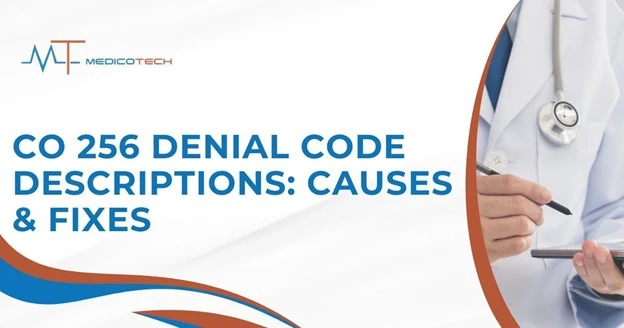The 99396 CPT Code is a key element in the preventive care and wellness services offered by healthcare providers, focusing on patients aged 40-64 years. This code is utilized for comprehensive preventive medicine evaluations, including regular checkups, screenings, and lifestyle counseling. Preventive care plays a critical role in promoting long-term health and catching early signs of health issues before they develop into more serious conditions.
In this detailed guide, we will explore the 99396 CPT Code, its components, significance, billing guidelines, and best practices to ensure you are utilizing this code accurately to receive appropriate reimbursement.
What is the 99396 CPT Code?
The 99396 CPT Code was published to cover the preventive medications review and management processes offered to established patients between the ages of 40 and 64 years. Unlike typical office visits that focus on diagnosing and treating specific health issues, this code is intended for routine checkups aimed at identifying potential health risks and implementing preventive measures to mitigate them.
Using the 99396 CPT Code, healthcare providers can ensure comprehensive care that goes beyond treating existing conditions to preventing future ones. It allows providers to conduct screenings, provide guidance on healthy lifestyle choices, and assess potential risks based on the patient’s medical and family history.
Components of the 99396 CPT Code
The 99396 CPT Code covers various aspects of a preventive visit, each designed to address key components of a patient’s health. These components are essential for ensuring that the visit is complete, and the billing is accurate. Let’s break down the primary components of the 99396 CPT Code:
1. Detailed Medical History
One of the first steps in a 99396 preventive visit is taking a comprehensive medical history. This review provides important insights into the patient’s health background and potential risks. Key elements include:
- Current and past medical conditions: Identifying chronic illnesses like heart disease, diabetes, or hypertension.
- Medications: Reviewing prescribed and over-the-counter medications, including any changes in prescriptions.
- Family history: Noting any family history of serious illnesses, such as cancer or genetic disorders.
- Lifestyle factors: Assessing smoking habits, alcohol consumption, diet, exercise, and other relevant behaviors that impact health.
2. Physical Examination
The 99396 CPT Code visit must involve an entire physical examination. Through the course of this examination, the medical office will:
Take vital signs such as blood pressure, weight, heart rate, and respirations.
Assess organ systems, such as cardiovascular, respiratory, musculoskeletal, and neurological systems, to detect any abnormalities.
Perform specialized checks based on the patient’s age and health risks, like abdominal or skin exams for cancer screenings.
Additionally, during the physical exam, therapeutic procedures like those described in CPT Code 96372 may be performed if the patient requires injections for treatment or diagnostic purposes. These injections are often part of the broader preventive care strategy, ensuring that all health needs are addressed during the visit.
The physical exam helps establish a baseline for the patient’s overall health and identifies any immediate areas of concern.
3. Preventive Screenings and Immunizations
Preventive screenings are essential to the 99396 CPT Code visit, as they help detect potential health issues before they escalate. Depending on the patient’s age, gender, and medical background, common screenings may include:
- Cancer screenings: Mammograms, colonoscopies, and skin exams.
- Chronic disease screenings: Blood tests for cholesterol, glucose levels, or kidney function.
- Vaccinations: Ensuring that the patient is up-to-date on important immunizations like flu shots, tetanus boosters, and pneumonia vaccines.
These screenings are tailored to the patient’s individual health risks and guidelines for their age group, ensuring early detection of conditions like high blood pressure, high cholesterol, or certain types of cancer.
4. Health Counseling
Health counseling is an integral component of the 99396 CPT Code. This includes providing guidance on lifestyle changes to improve overall health and prevent future diseases. Key topics for counseling include:
- Diet: Helping patients make healthier food choices, including a focus on reducing fat intake, increasing fiber, and maintaining a balanced diet.
- Exercise: Encouraging regular physical activity based on the patient’s health status and fitness level.
- Smoking cessation: Discussing methods to quit smoking and providing resources or referrals to smoking cessation programs.
- Alcohol and substance abuse: Addressing any issues related to alcohol consumption or substance use and offering support or treatment options if necessary.
- Mental health: Discussing stress management, mental well-being, and offering referrals to mental health professionals if needed.
Health counseling during the 99396 visit not only educates the patient but empowers them to make informed decisions about their health, fostering long-term wellness.
Why Is the 99396 CPT Code Important?
The 99396 CPT Code is essential for primary care providers who focus on the prevention of diseases and the promotion of long-term health. Here’s why it’s so crucial:
Early Detection of Diseases
By using 99396 CPT Code for regular screenings and assessments, healthcare providers can identify potential health issues before they become serious. Early detection of conditions like high blood pressure, diabetes, or certain cancers increases the chances of successful treatment and management.
Reduces Healthcare Costs in the Long Run
Preventive care is not only good for patient health but also helps reduce overall healthcare costs. By preventing or catching conditions early, providers can help patients avoid expensive emergency care or long-term treatment costs for chronic diseases.
Promotes Better Health Outcomes
With its focus on screenings, vaccinations, counseling, and risk assessments, the 99396 CPT Code helps improve patient outcomes.Periodic prophylactic checks can mitigate the risk of repetitive situations, improve life expectancy, and produce better living conditions, as the problems can be avoided in advance.
CPT Code 99396 and Reimbursement
Understanding the payment rates for CPT law 99396 is pivotal for healthcare providers. These rates vary based on factors such as the patient’s insurance provider, geographic location, and the provider’s contract with the insurer. Accurate billing and rendering ensure proper payment for preventative services.
Reimbursement Rates for 99396 CPT Code
Reimbursement for CPT code 99396 can differ depending on the type of insurance plan. Below is an overview of the general reimbursement rates:
Insurance Provider
Reimbursement Range
Medicare
$150-$175
Private Insurance
$175-$250
Medicaid
$120-$150
Insurance Coverage for Preventive Services
Most insurance plans, especially those under the Affordable Care Act (ACA), cover preventive services like those provided under CPT code 99396 at 100% with no out-of-pocket costs for the patient. However, coverage may vary depending on the insurer, plan type, and specific guidelines. For Medicare, preventive visits are covered under Annual Wellness Visit codes like G0438 and G0439, which are similar but not the same as CPT 99396.
Providers must verify insurance coverage and ensure that preventive services are correctly documented to avoid billing discrepancies and to ensure proper reimbursement.
Best Practices for Using CPT Code 99396
To ensure proper billing and maximize reimbursement for CPT code 99396, healthcare providers must follow specific guidelines. These best practices help streamline the billing process, reduce claim denials, and maintain compliance.
1. Accurate Documentation
Proper attestation is the foundation of accurate billing and payment. When using CPT code 99396, it is essential to:
- Record comprehensive medical history: Document all relevant details about the patient’s medical, family, and lifestyle history.
- Provide detailed physical exam findings: Ensure the results of the physical examination are thoroughly recorded, including vital signs and any abnormalities detected.
- Document all screenings: List all preventive screenings performed, including any lab tests, immunizations, and cancer screenings.
- Record counseling sessions: Note the lifestyle counseling provided to the patient, such as advice on diet, exercise, smoking cessation, and mental health.
2. Time Documentation
CPT code 99396 typically requires a visit duration of 30-60 minutes. Be sure to document the total time spent during the visit, including the time for screenings, counseling, and the physical exam. This ensures that the visit meets the minimum duration requirement for the code and avoids underbilling or coding issues.
3. Use of Modifiers
In case the patient gets extra services during the preventive visit that are not related to the element of preventings, there is a possibility that a situation appears when the modifier 25 is needed in order to differentiate between what is the element of preventings and what are additional services to the patient. For example, if the patient has an acute issue like an infection that requires a separate evaluation, modifier 25 can be added to indicate that both services were provided during the same visit.
4. Ensure Correct Coding
Verify that CPT code 99396 is used correctly for established patients in the 40-64 age range. For new patients or those outside of this age group, different codes may apply, such as 99395 for patients aged 18-39 or 99397 for those aged 65 and older. Accurate coding is essential for ensuring appropriate reimbursement and avoiding audits or denials.
Common Billing Challenges with 99396 CPT Code
Billing for CPT code 99396 can present challenges, especially when there are inconsistencies in documentation or misunderstanding of payer requirements. Here are some common issues healthcare providers face and how to overcome them:
1. Claim Denials Due to Incorrect Documentation
One of the most common issues with CPT code 99396 billing is inadequate documentation. Without thorough documentation of the medical history, physical exam findings, screenings, and counseling services, insurance companies may deny claims. To avoid this:
- Use checklists and templates to ensure all required components of the visit are documented.
- Train staff on proper attestation procedures to minimize crimes..
2. Inconsistent Insurance Coverage
Insurance plans may vary in their coverage of preventive services. While ACA plans generally cover preventive visits with no copays, Medicare uses different codes for preventive services. Make sure to verify coverage details with each payer before submitting claims for CPT code 99396.
3. Upcoding or Downcoding
Avoid upcoding( billing for an advanced position of service than handed) or downcoding( billing for a lower position of service). Ensure that the 99396 CPT code accurately reflects the services provided, including all screenings, counseling, and examinations.
4. Missing Modifiers
When additional problem-oriented services are performed during the preventive visit, modifier 25 must be used. Failing to apply this modifier can result in incorrect claims or missed reimbursement for services rendered outside the scope of the preventive care visit.
Tips to Maximize Reimbursement for 99396 CPT Code
To ensure maximum reimbursement for CPT code 99396, follow these actionable tips:
- Use up-to-date billing software: Automate parts of the billing process to avoid human errors and streamline claim submissions.
- Keep abreast of payer policies: Insurance companies regularly update their billing requirements, so it’s essential to stay informed about each payer’s specific guidelines.
- Conduct regular audits: Review past claims to identify any potential issues, ensuring future claims are accurately billed.
By following these strategies, healthcare providers can ensure accurate billing, reduce claim denials, and increase the chances of receiving appropriate reimbursement for preventive care services.
Conclusion
The 99396 CPT law plays a pivotal part in preventative healthcare for cases progressed 40- 64. By providing comprehensive wellness exams, screenings, and lifestyle counseling, healthcare providers can help detect early health risks, improve patient outcomes, and reduce long-term healthcare costs. Accurate billing, proper documentation, and understanding insurance requirements are essential for ensuring proper reimbursement. By adhering to the best practices outlined in this guide, healthcare providers can enhance the quality of care they offer and optimize their revenue.
Frequently Asked Questions (FAQs)
- What is CPT Code 99396?
Answer: CPT Code 99396 is used for preventive medicine evaluation and management services for established patients aged 40-64 years. It includes a comprehensive wellness visit that focuses on disease prevention, health screenings, risk assessments, immunizations, and lifestyle counseling.
- Who is eligible for CPT Code 99396?
Answer: CPT Code 99396 is designed for established cases between the periods of 40 and 64. These patients should have received care from the same provider within the past three years. The code is used for preventive visits rather than for addressing specific health complaints or conditions.
- What is the duration of a 99396 CPT Code visit?
Answer: The typical duration for a 99396 preventive visit is between 30 to 60 minutes. This ensures enough time for comprehensive health assessments, counseling, and screenings tailored to the patient’s needs.
- Can I use CPT Code 99396 for new patients?
Answer: No, CPT Code 99396 is specifically for established cases. For new patients within the 40-64 age range, you should use a different preventive code, such as 99395 (for new patients aged 40-64).
- Does Medicare cover CPT Code 99396?
Answer: Medicare does not use CPT Code 99396. Medicare has alternatives to the preventative as it provides content on the annual wellness visit ( AWV) with canons such as G0438 on the first visit and or G0439 on posterior visit. These services cover similar preventive care but are not the same as CPT 99396.




